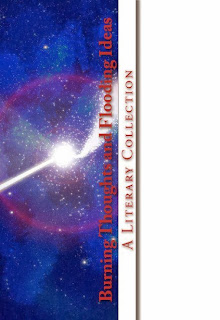I am also quite pleased with the name consistency for the books - the ancient female characters, Salome, Venus, and Diotima. Poetry is often the artistic, accessible side of philosophy, hence I chose these characters as a method of symbolism. As Isaac D'Israeli put it, "Philosophy becomes poetry, and science imagination, in the enthusiasm of genius." Many people have a difficult time relating to philosophy: there have been very few recorded female philosophers throughout history, so I feel that the symbolism of the iconic female names is an introduction to the best of both worlds. The phrase in the title, "Battery, Electric Personality", is also a poem in Diotima. I chose it as the title poem because it encompasses much of the nature of the work, as Lydia M. Child said, "Genius hath electric power which earth can never tame." So, the work ultimately works together in considering the fact that the name "Diotima" means "honored by Zeus" (the god of sky and thunder).
In my opinion, Diotima contains some of my most complex and advanced works thus far. In it, where the poetry seems otherworldly, the philosophy is practical. And what I really like about the direction of the lyrics is the iridescence of it all - potentially, one is able to interpret something different and receive a fresh new meaning with each and every read. The often multi-headed puns aim to give interpreting the poems a mentally interactive venture, and because of this, the nickname "the infinite book" has stuck with me when referring to it. As far as the mechanics go, it takes the endless discomforts of a perfectionist to a whole new level, hence providing the perspective of a universe that never wants to stop expanding. I personally consider it a rhythmic adventure executed as a literary musical. Similar to J.R.R. Tolkien's The Lord of the Rings being a collection of high-fantasy novels, Diotima, Battery, Electric Personality, at times, reads like a role-playing game in the universe of otherworldly poetry books.

